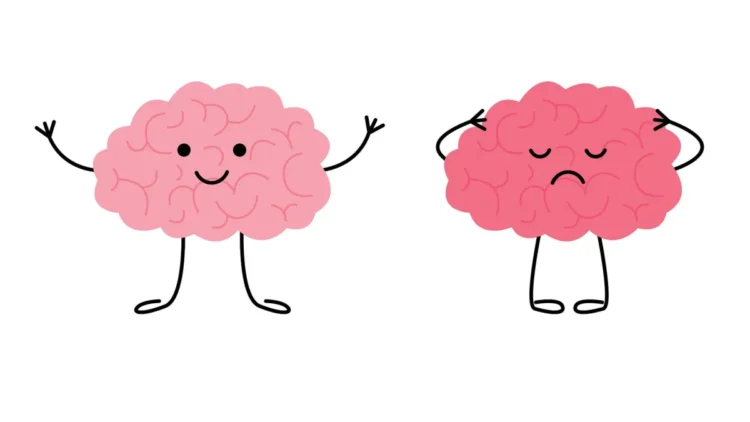Turning Doubt into a Superpower
Our brains are marvels of complexity, constantly processing, analyzing and adapting to an ever-changing world. But amidst all this cognitive power lies a universal vulnerability: insecurity. The “insecure brain” isn’t a defect or flaw; it’s an evolutionary adaptation designed to protect us from harm. However, in the modern world, this mechanism often backfires, leading to anxiety, overthinking and decision paralysis. Let’s explore the science behind the insecure brain, its impact on our daily lives, and strategies to harness its potential for growth.
The Evolution of Insecurity: A Survival Mechanism
Insecurity, at its core, is the brain’s way of alerting us to potential threats. For our ancestors, uncertainty about a predator’s presence or the safety of a food source could mean the difference between life and death. The brain developed a finely tuned sensitivity to ambiguous cues, prompting caution and preparation.
In today’s world, physical dangers have largely been replaced by social and psychological ones. The same neural circuits that once saved us from predators now trigger when we face situations like public speaking, interpersonal conflict, or career uncertainties. The amygdala, our brain’s fear center, becomes hyperactive, creating a cascade of stress responses.
How the Insecure Brain Manifests
-
Overthinking and Rumination
Insecurity often leads to mental loops, where we replay scenarios, analyze our decisions, and anticipate outcomes that rarely materialize. This is the brain’s attempt to regain a sense of control. -
Imposter Syndrome
For many, insecurity manifests as self-doubt, even in the face of achievements. This phenomenon, driven by fear of being “exposed,” is a classic example of the brain misinterpreting signals of uncertainty. -
Avoidance Behavior
Whether it’s dodging a difficult conversation or procrastinating on a challenging task, insecurity pushes us toward avoidance. While this offers temporary relief, it often exacerbates the underlying issue.
The Neuroscience of Insecurity
Studies in neuroscience reveal that insecurity involves multiple brain regions:
-
The Amygdala: Heightened activity in the amygdala signals perceived threats, even when they’re not objectively dangerous.
-
The Prefrontal Cortex: This region, responsible for decision-making and rational thought, often struggles to override the amygdala’s emotional responses.
-
The Default Mode Network (DMN): Associated with self-referential thinking, the DMN becomes overactive during rumination, amplifying feelings of doubt and fear.
Neuroplasticity, however, offers hope. The brain’s ability to reorganise itself means we can rewire patterns of insecurity with intentional practice.
Strategies to Reframe Insecurity
-
Mindfulness and Meditation
By practicing mindfulness, we can train the brain to observe thoughts without judgment. This reduces the amygdala’s reactivity and strengthens the prefrontal cortex. -
Cognitive Behavioral Techniques (CBT)
CBT helps identify and challenge irrational thoughts. For example, replacing “I’ll fail” with “I’ve succeeded before and can try again” creates a more balanced perspective. -
Embracing Uncertainty
Instead of fearing the unknown, reframing uncertainty as an opportunity for growth can shift our brain’s response. Taking small, calculated risks builds resilience over time. -
Gratitude Journaling
Focusing on positive aspects of life activates the brain’s reward systems, counteracting the negativity bias inherent in insecurity. -
Social Connection
Sharing our vulnerabilities with trusted individuals reduces the brain’s perception of threat and enhances feelings of safety and belonging.
Insecurity as a Catalyst for Growth
While insecurity can feel overwhelming, it also has a silver lining. It drives self-improvement, fosters empathy and keeps us humble. A certain level of insecurity encourages us to seek feedback, learn, and adapt. The key is not to eliminate insecurity but to manage it effectively.
The Future of Understanding Insecurity
As neuroscience advances, we’re learning more about the brain’s adaptability. Emerging technologies like neurofeedback and brain stimulation hold promise for mitigating chronic insecurity. By combining these tools with psychological strategies, we can empower individuals to navigate uncertainty with confidence.
Conclusion
The insecure brain is not a flaw but a testament to our evolutionary ingenuity. By understanding its mechanisms and adopting strategies to work with it, we can transform insecurity from a stumbling block into a stepping stone. Embrace your insecurities—they are the bridge between who you are and who you aspire to be.
What strategies have you found helpful in managing insecurity? Share your thoughts in the comments below!


























